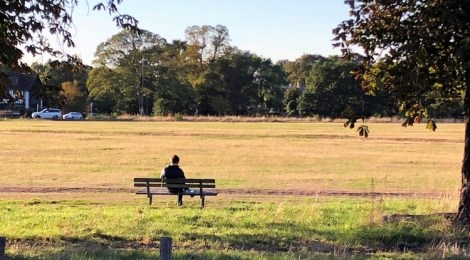
Being People
“What were you doing near Matunga Gymkhana?” Lulu, my parrot asked as he flew down from the Mango tree and landed on the arm of my chair. I kept aside the book. Morning sunlight and cool breeze in a winter is the best setting to read in a park.
“Well, I was invited there. At the WeSchool. Dr Joseph George has written a book, ‘Being People’. The event was for its launch in Mumbai.”

“You mean the Bengaluru based Leadership coach? I know him. He is also a TISSian, right? What kind of book is that – Being People?”
“He has written life histories of six HR professionals.”
“Life histories! That’s interesting.”
“Why?”
“Because truth is stranger than fiction. That is what makes life histories interesting.”

“I read a biography of PG Wodehouse. His life was his work, writing, very non-controversial but one incident which kicked up controversy.”
“Controversies put the protagonists under X-ray. And like Doctors, we read them and try to understand and make meaning out of it.”
“True. There were many, mainly the British, who believed that he had committed unpardonable crime by broadcasting on German, Nazi to be precise, radio. And there are many who laugh heartily at his broadcasts, his narration of prison camp was hilarious. He made fun of everything, said nothing in favour of the Germans.”
“Are you saying that the life histories of the six professionals cover controversies in their lives?”
“May be yes; may be not. Why don’t you read Being People?”
“Hmmm….. Writing life histories must be difficult.”
“True.”
“I have read this, ‘In response to a legal interrogatory regarding the truth of statements in published portions of his autobiography Clemens, who we know as Mark Twain, said, “Yes, literally, they are true, that is to say they are a product of my impressions — recollections. As sworn testimony they are not worth anything; they are merely literature.”’”
“Ha ha! Trust Mark Twain for such crisp and insightful statement. The evidentiary value of biographies is zilch, that’s what he is saying.”
“That’s in the court of law. Yet it tells you something, actually a lot, about the person. It may be the interpretation of the author or the protagonists. But it sparks off reflection. Why does that happen?”
“I was reading the Bio of Lisa Ray. Her grandfather left nothing for her Indian father in his will. That’s because he married a polish girl. And unlike many who fight such discrimination, he accepted the will.”

“It is a life examined. It helps us reflect on our own life. We see people making startling decisions. Unexpected in those circumstances. Decisions which give a new turn to their life.”
“Have you heard of Albie Sachs? He was a former judge on the Constitutional Court of South Africa. His life has more drama and more ups-and-downs than fictional stories. He ponders over ‘How do life experiences affect the (legal) decision making?’ And answers ‘In unexpected ways.’”
“True, we reach some critical decisions in unexpected ways. Words are so poor communicators of meaning. ‘In unexpected ways’ he said. You have to realise the meaning by ‘cooking’ the message in your own life experiences.”
“Did you read any such instances in the life stories in the book Being People?”
“Many.”
“Tell me.”
“Read it, why ask me?” Lulu hopped on near the book, opened it, looked at me to invite reading it.
Vivek S Patwardhan
“What you leave behind is not what is engraved in stone monuments, but what is woven into the lives of others.”

Nice one Sir. Thanks for evoking interest in the book by providing insights in your articles.
This blog definitely encourages interest in Being People.will surely read this one as the author is a good friend and i am totally aware if his intellectual capacities and emotional sensotivities.
Look forward to reading it
So, both Mumbai and Pune launches of the book were next to Gymkhanas. Keen parrots get there on treetops. Wise ones listen and maybe read too.